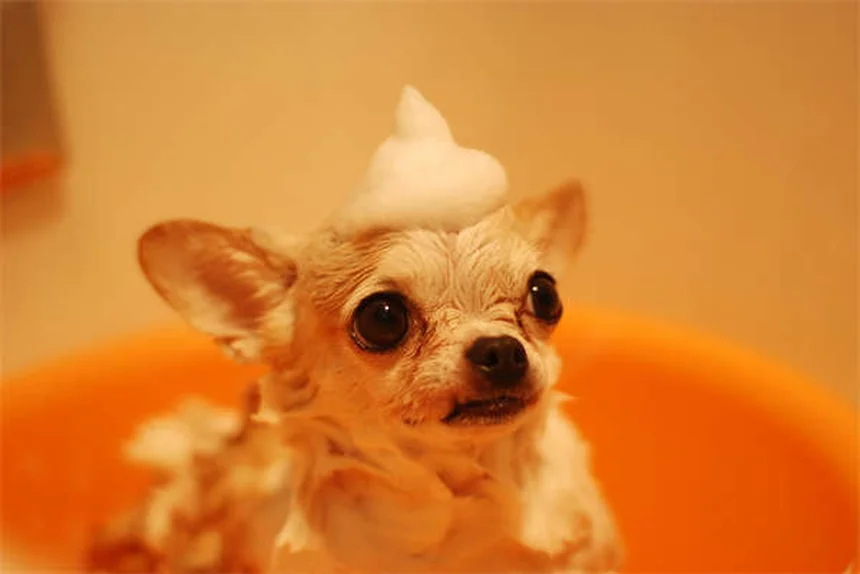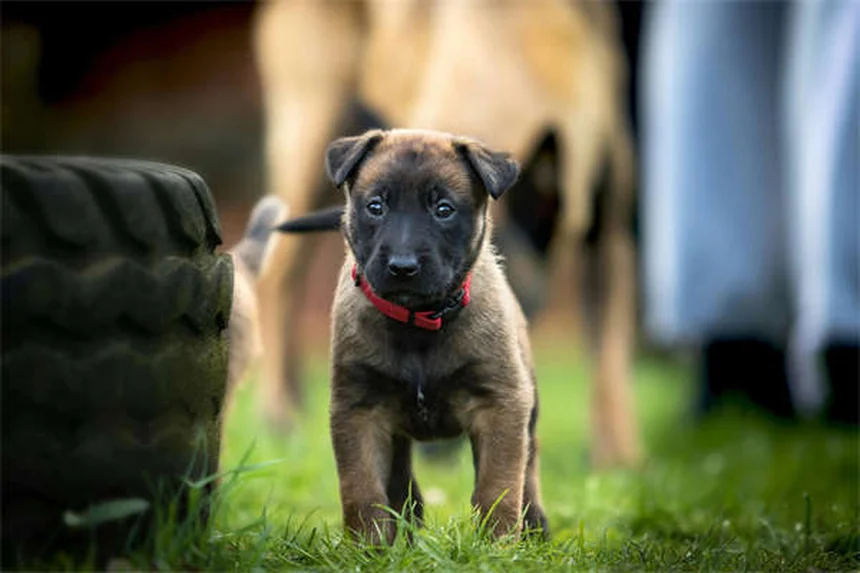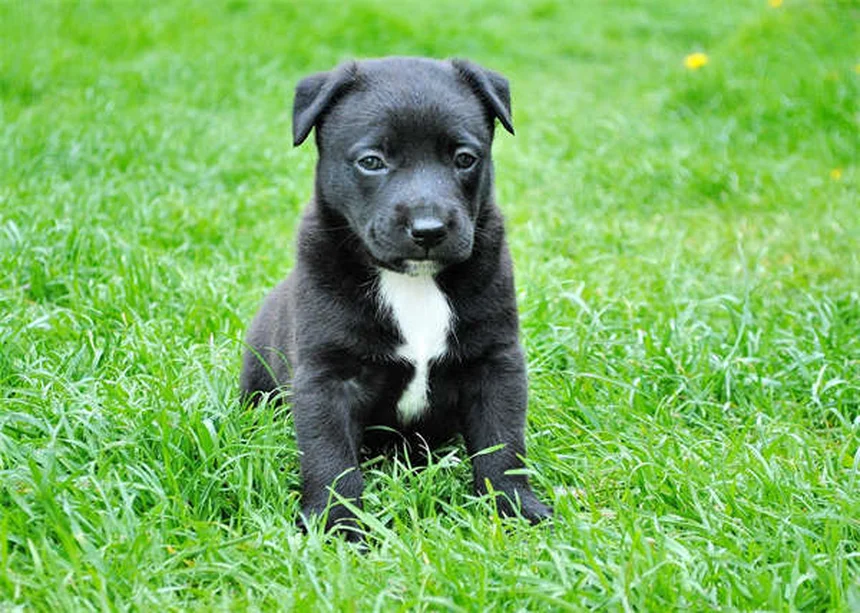Why do dogs pant? The answer is: Panting is how dogs regulate their body temperature and express emotions! Unlike humans who sweat, dogs rely on rapid breathing to cool down through evaporation from their tongue and lungs. But here's what you need to watch for: while post-play panting is totally normal (just like us catching our breath after a workout), excessive panting when resting could signal heatstroke, pain, or serious medical conditions. I've seen countless cases where attentive pet parents saved their dog's life by recognizing abnormal panting patterns. Let me break down when you should cheer for those happy puppy breaths - and when to speed-dial your vet!
E.g. :Furosemide for Dogs: What Pet Owners Need to Know
- 1、Why Do Dogs Pant? Let’s Break It Down
- 2、Wait—Why Is My Dog Panting NONSTOP?
- 3、Panting Detective: How to Assess Your Dog
- 4、Panting Myths Busted!
- 5、Your Action Plan
- 6、Beyond the Basics: What Else You Need to Know About Dog Panting
- 7、Panting vs. Other Breathing Issues
- 8、Cool Tricks to Help Your Panting Pup
- 9、Panting Through the Ages
- 10、FAQs
Why Do Dogs Pant? Let’s Break It Down
Panting 101: The Basics
Ever noticed your dog panting like they just ran a marathon... but they’ve been napping all day? Don’t panic—yet. Panting is as normal for dogs as scrolling TikTok is for teens. But sometimes, it’s their way of saying, "Hey human, I need help!"
Here’s the deal: Dogs can’t sweat like we do (imagine sweating through your paws—yuck!). Instead, they pant to regulate body temperature. When they inhale rapidly, moisture evaporates from their tongue, nose, and lungs, cooling them down. Think of it as their built-in AC system!
When Panting Means "Life’s Good!"
Your dog isn’t just panting—they’re communicating. Check these happy scenarios:
- Post-playtime glow: After fetching that ball 50 times, heavy panting = normal. Just offer water and a shady spot.
- Treat excitement: That rapid, shallow pant while you open the bacon bag? Pure joy. (Bonus: Usually comes with helicopter tail wags.)
| Situation | Panting Type | What to Do |
|---|---|---|
| After playing in the park | Deep, rhythmic | Offer water, let them rest |
| During a thunderstorm | Fast + whining | Comfort with a safe space |
Wait—Why Is My Dog Panting NONSTOP?
 Photos provided by pixabay
Photos provided by pixabay
Red Flags You Can’t Ignore
“But my dog pants all the time—should I worry?” Great question! While panting is normal, these signs scream vet visit ASAP:
Panting plus...
- Bright red or blue gums
- Collapsing or stumbling
- Coughing like they swallowed a squeaky toy
Medical Causes: More Than Just Heat
Did you know certain meds (looking at you, prednisone!) can trigger panting? Other sneaky culprits:
- Pain: Like us hiding a headache, dogs pant to mask discomfort.
- Heatstroke: Brachy breeds (Pugs, Bulldogs) overheat faster than a phone in the sun.
- Heart/lung issues: Labored breathing during sleep? Time for a checkup.
Panting Detective: How to Assess Your Dog
Play Sherlock With These Clues
Next time your dog pants, ask yourself:
1. What’s the context?
Panting during a July hike? Normal. Panting while snoozing in AC? Weird.
2. Listen closely:
Golden Retrievers with a raspy pant may have laryngeal paralysis—it sounds like they’re breathing through a kazoo!
 Photos provided by pixabay
Photos provided by pixabay
Red Flags You Can’t Ignore
If your dog’s overheating:
- Hose them down (not ice-cold—think lukewarm).
- Get them indoors STAT.
- Call your vet while blasting the car AC en route.
Pro tip: Keep a “doggy first-aid kit” with a cooling mat and electrolyte gel for summer adventures.
Panting Myths Busted!
“All panting is bad.”
False! Dogs pant to:
- Cool down (like after digging to China in the backyard)
- Express emotions (happy panting vs. stress panting)
“Only old dogs pant heavily.”
Nope! Puppies pant after zoomies, and anxious dogs pant during fireworks. Age isn’t the only factor.
Your Action Plan
 Photos provided by pixabay
Photos provided by pixabay
Red Flags You Can’t Ignore
Trust your gut—you know your dog best. If their panting seems “off,” call within 24 hours if you notice:
- Panting at rest for over 30 minutes
- Refusing favorite treats (a Labrador skipping bacon? Alarm bells!)
Prevention Is Key
For heat-sensitive breeds:
- Walk at dawn/dusk in summer
- Freeze kibble in water for a cooling snack
- Invest in a kiddie pool (dogs love splash zones!)
Remember: Panting is usually NBD—but when in doubt, let your vet check it out. Now go enjoy those happy, healthy panting sounds!
Beyond the Basics: What Else You Need to Know About Dog Panting
The Breed Factor: Why Some Dogs Pant More
You ever notice how Pugs sound like they're running a marathon after climbing stairs? That's because breed plays a huge role in panting behavior. Short-nosed breeds (we're looking at you, Bulldogs and Boxers!) have compact airways that make breathing harder.
Here's a fun fact: A study showed that flat-faced breeds pant 40% more frequently than long-nosed dogs like Collies. That's why you'll see your Frenchie panting after minimal activity while your neighbor's Greyhound barely breaks a sweat. It's not laziness - it's anatomy!
Emotional Panting: More Than Just Temperature
Did you know dogs pant when they're stressed or excited too? That's right - it's not always about body temperature. Next time you're at the vet's office, watch how dogs pant differently when they're:
- Excited (short, rapid pants with wagging tail)
- Anxious (longer, deeper pants with ears back)
- In pain (shallow, irregular breathing)
I once saw a Golden Retriever who panted so hard during a thunderstorm he hyperventilated! That's when I learned about emotional panting. Now I always keep calming treats on hand during fireworks season.
Panting vs. Other Breathing Issues
How to Tell Normal Panting From Trouble
"Is this normal panting or something worse?" Great question! Here's a quick cheat sheet:
| Type | Sound | Body Language | When It Happens |
|---|---|---|---|
| Normal panting | Rhythmic, open-mouth | Relaxed posture | After exercise or in heat |
| Wheezing | High-pitched whistle | Neck extended | Any time, especially at rest |
| Reverse sneezing | Snorting sound | Standing stiff | Often after excitement |
Remember that time your dog made those weird honking sounds? That was probably reverse sneezing - totally different from panting! Most dogs outgrow it, but if it happens frequently, check with your vet.
When Panting Becomes an Emergency
Here's something scary I learned the hard way: Some breathing issues look like panting but are actually life-threatening. Watch for these red flags:
- Blue or purple gums (means oxygen isn't circulating)
- Using belly muscles to breathe (you'll see their sides heaving)
- Panting that doesn't stop in cool conditions
My friend's Bulldog once started "panting" strangely at night - turned out to be a respiratory crisis! They rushed to the emergency vet just in time. Now I always tell people: When in doubt, get it checked out.
Cool Tricks to Help Your Panting Pup
DIY Cooling Solutions That Actually Work
You don't need fancy equipment to help an overheated dog. Try these simple tricks I've collected from dog owners:
The Towel Trick: Wet a towel with cool (not cold!) water and drape it over your dog's back. The evaporation works like their natural panting mechanism. Pro tip: Focus on the belly and paw pads where blood vessels are closest to the skin!
Frozen Treat Hack: Mix plain yogurt with peanut butter, freeze in ice cube trays. My dogs go crazy for these on hot days. Just watch them pant happily while licking their cool treat!
Preventing Overheating Before It Starts
Why wait until your dog is panting heavily? Here's how I keep my dogs comfortable in summer:
- Walk schedules: Early morning or late evening only
- Booties for pavement walks (test with your hand - if it's too hot for you, it's too hot for paws!)
- Always carry a collapsible water bowl
Last summer, I invested in a cooling vest for my hiking trips. Best $40 I ever spent - my Lab could hike twice as long without excessive panting. Just wet it and the evaporation keeps them cool for hours!
Panting Through the Ages
Puppy Panting vs. Senior Dog Panting
"Do puppies pant differently than older dogs?" You bet they do! Puppies tend to pant in short bursts after play, while senior dogs might pant more at rest. Here's what I've noticed after raising multiple dogs:
Puppies are like toddlers - they go from 100 to 0 real quick. You'll see intense panting after zoomies, then they crash hard. Older dogs? They might pant more because:
- Arthritis pain (yes, panting can indicate discomfort)
- Decreased lung capacity
- Medication side effects
My 12-year-old Beagle started panting at night - turns out it was early heart disease. The vet caught it early because I mentioned the panting change. Moral of the story? Track changes in your dog's breathing patterns!
Seasonal Panting Patterns
Just like we adjust our wardrobe for seasons, dogs adjust their panting. Here's what to expect:
Spring/Fall: Moderate panting during activity. Summer: Heavy panting even at rest. Winter: Less panting unless they're wearing thick coats indoors (which they shouldn't be!).
I keep a "panting journal" for my dogs - just quick notes about what's normal for each season. That way, when something changes, I spot it immediately. Try it - it takes 10 seconds and could save your dog's life!
E.g. :Why Do Dogs Pant? What To Know About Dogs and Panting | PetMD
FAQs
Q: Is it normal for my dog to pant after playing?
A: Absolutely! Just like you might breathe heavily after running, dogs pant to cool down after exercise. What we look for is whether the panting slows down within 15-30 minutes of resting. Pro tip from my vet friends: Keep fresh water available and avoid midday walks in summer. Brachycephalic breeds (like Pugs) need extra care - their short snouts make cooling less efficient. If your dog's panting sounds raspy or they can't settle, that's when we worry.
Q: Why does my dog pant when nothing physical is happening?
A: Great catch noticing this! Stress panting is super common - think of it like nervous nail-biting in humans. Watch for whale eyes (showing the whites), yawning, or tucked tails. I once fostered a rescue who panted during thunderstorms until we created a safe den with white noise. Medication side effects (especially steroids) can also cause unexplained panting - always check with your vet about new prescriptions. When in doubt? Take a video to show your vet during the appointment.
Q: How can I tell if my dog's panting means heatstroke?
A: Heatstroke is an emergency - here's what I teach in pet first aid classes: Look for brick-red gums, stumbling, or vomiting along with heavy panting. Immediate action: Move them to shade, use lukewarm (not cold!) water to cool them, and get to a vet ASAP. Prevention is key - I never leave dogs in cars (temps spike dangerously fast) and always bring collapsible bowls on hikes. Did you know pavement can burn paws in just 5 minutes on an 85°F day? Test surfaces with your hand first!
Q: My older dog pants more at night - should I worry?
A: This warrants a vet visit, friend. While senior dogs might pant more from arthritis pain, nighttime panting can signal heart disease or Cushing's syndrome. My own Labrador started this, and bloodwork revealed a thyroid issue. Track when it happens: Panting only when lying in certain positions could indicate discomfort. Your vet might recommend chest X-rays or an echocardiogram. Better safe than sorry - many conditions are manageable when caught early!
Q: What's that weird honking sound when my dog pants?
A: You're likely describing reverse sneezing or laryngeal paralysis common in older Labs and Goldens. While occasional episodes are normal, persistent issues need attention. One client's dog made these sounds for months before diagnosis - surgery improved his quality of life dramatically. For mild cases, I recommend harnesses instead of collars to reduce throat pressure. Always video these episodes to show your vet since they might not happen during exams!











